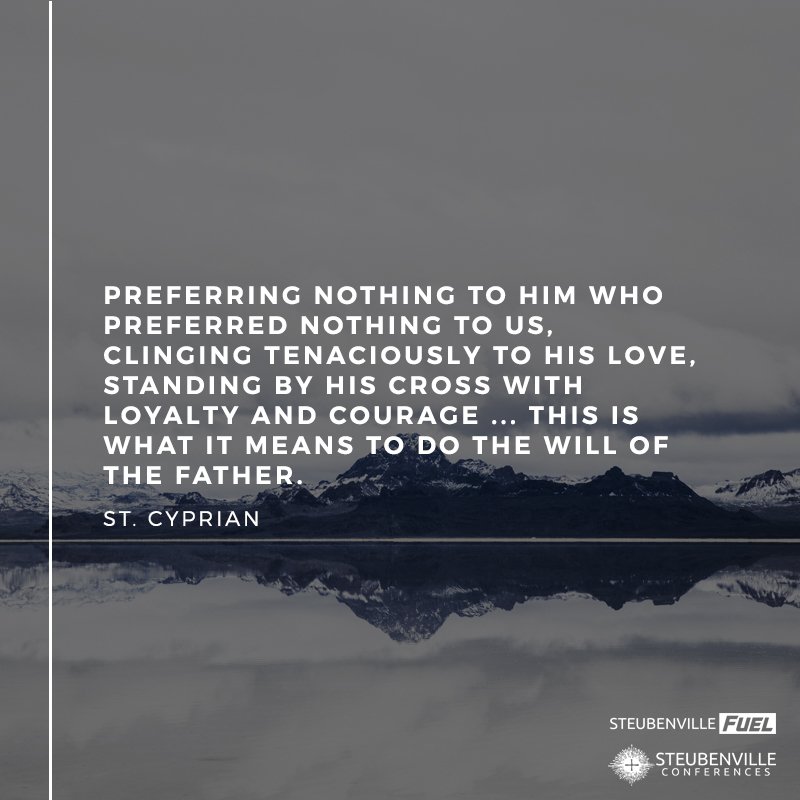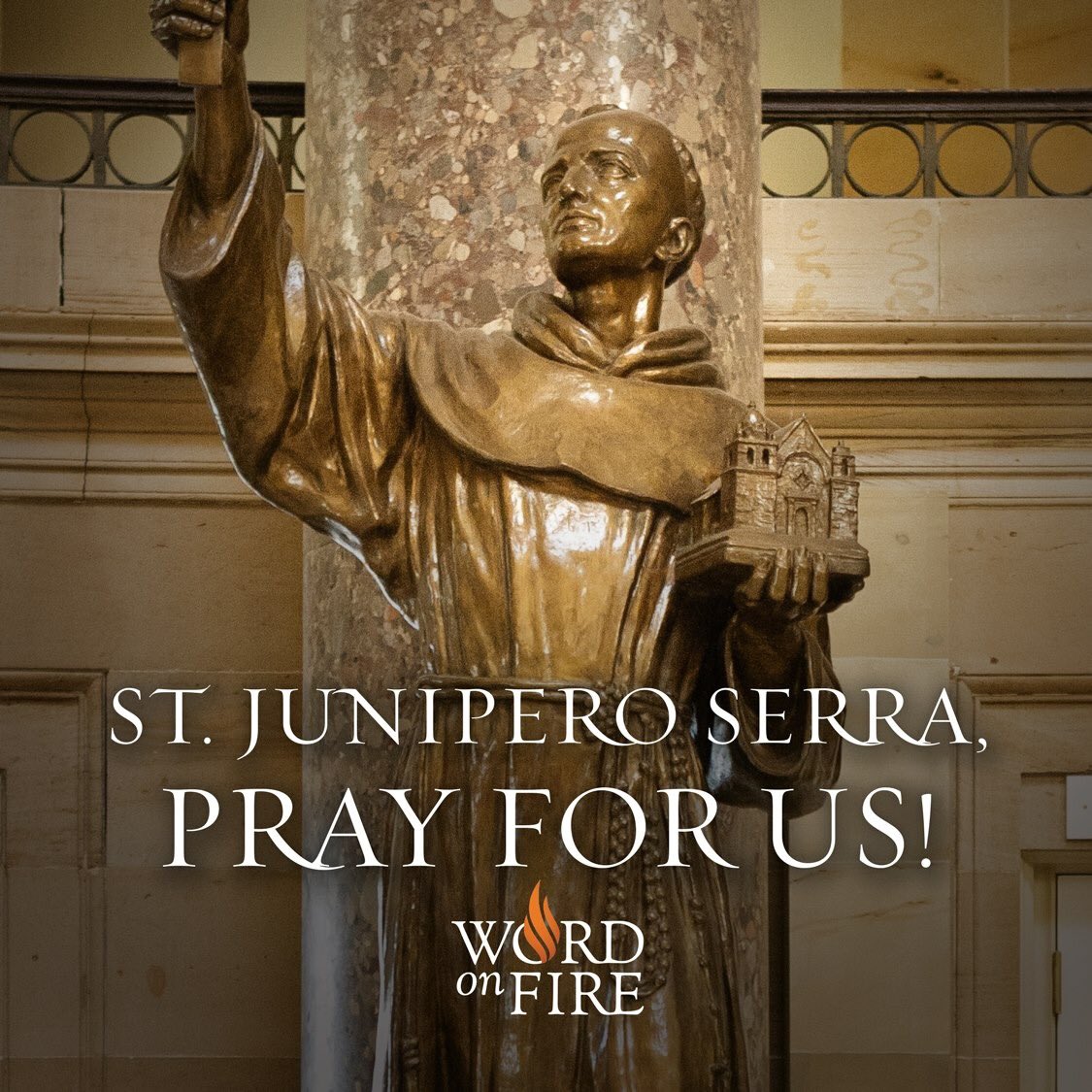1. I love this. 24 Hours for the Lord. Of course Pope Francis would be begging us to go to Confession for his second anniversary. I imagine Fulton Sheen preaching on it as he did one hour for the Lord, his pitch for a daily holy hour. (Which I once talked about at a Young Republican meeting at Catholic University, when they invited me to speak on Ash Wednesday. Funny memory. It was well-received, too! You never know when you might have the opportunity to talk about Eucharistic Adoration?)
2.
"…It is a time to live the Beatitudes." | #dailyeSpiration from Fr. Dominique, O.P. pic.twitter.com/r1Jb2tuzId
— Steubenville (@go2steubenville) March 12, 2015
The Church routinely has recommended to us to receive the Sacrament of Penance frequently. “Without being strictly necessary,” the Catechism of the Catholic Church says, “confession of everyday faults (venial sins) is nevertheless strongly recommended by the Church.” It stresses confession of venial sins because it presumes that if we have committed a mortal sin, we would have recourse to the Sacrament without delay. But priests know that if people are not coming to the Sacrament regularly, they often wait for months to confess even mortal sins.
St. John Paul emphasized that we’re deceived if we think we can become holy without it. “It would be an illusion to seek after holiness, according to the vocation one has received from God, without partaking frequently of this Sacrament of conversion and reconciliation,” he said in 2004. “Those who go to Confession frequently, and do so with the desire to make progress, will notice the strides that they make in their spiritual lives.”
Blessed Pope Paul VI described that transformation: “Frequent and reverent recourse to this sacrament, even when only venial sin is in question, is of great value. Frequent Confession is not mere ritual repetition, nor is it merely a psychological exercise. Rather it is a constant effort to bring to perfection the grace of our Baptism, so that we carry about in our bodies the death of Jesus Christ who died; so that the life Jesus Christ lives may be more and more manifested in us.”
Our refusals of Christ mimic the refusals of the devil. Our refusals of Christ are refusals to love and serve what Christ loves and serves.
— FrSteveGrunow (@FrSteveGrunow) March 12, 2015
Refusals of Christ all prefer self-interest to self-gift and in seeking to serve ourselves we become servants of dark powers.
— FrSteveGrunow (@FrSteveGrunow) March 12, 2015
There is no middle position between Christ and the devil. We are either gathered into Christ or scattered with the devil.
— FrSteveGrunow (@FrSteveGrunow) March 12, 2015
Conversion to Christ is not grim, but liberating. We become fully alive and freed from opposition to God that makes life stale, stifling.
— FrSteveGrunow (@FrSteveGrunow) March 12, 2015
5. This from Madeleine Delbrel in Magnificat today (subscribe here) is in keeping with a theme of Pope Francis: Do not be lukewarm! Remember your identity in Christ!
It is possible to be an excellent and theologian and live God’s love very poorly; we can know quite well what the Church is while still being only an anemic cell within her….
We don’t make good on obedience with a prayer said at Mass, with a devotion to a priest or to a movement. We don’t even make good on it with a faithful life of the sacraments, or with a fervent life of prayer, but rather by carrying our sacramental life and our prayer life wherever they must go, all the way to the end for which they were made.
6. From Tertullian, via the Liturgy of the Hours today:
Prayer is the offering in spirit that has done away with the sacrifices of old. What good do I receive from the multiplicity of your sacrifices? asks God. I have had enough of burnt offerings of rams, and I do not want the fat of lambs and the blood of bulls and goats. Who has asked for these from your hands?
What God has asked for we learn from the Gospel. The hour will come, he says, when true worshipers will worship the Father in spirit and in truth. God is a spirit, and so he looks for worshipers who are like himself.
We are true worshipers and true priests. We pray in spirit, and so offer in spirit the sacrifice of prayer. Prayer is an offering that belongs to God and is acceptable to him: it is the offering he has asked for, the offering he planned as his own.
We must dedicate this offering with our whole heart, we must fatten it on faith, tend it by truth, keep it unblemished through innocence and clean through chastity, and crown it with love. We must escort it to the altar of God in a procession of good works to the sound of psalms and hymns. Then it will gain for us all that we ask of God.
Since God asks for prayer offered in spirit and in truth, how can he deny anything to this kind of prayer? How great is the evidence of its power, as we read and hear and believe.
Of old, prayer was able to rescue from fire and beasts and hunger, even before it received its perfection from Christ. How much greater then is the power of Christian prayer. No longer does prayer bring an angel of comfort to the heart of a fiery furnace, or close up the mouths of lions, or transport to the hungry food from the fields. No longer does it remove all sense of pain by the grace it wins for others. But it gives the armor of patience to those who suffer, who feel pain, who are distressed. It strengthens the power of grace, so that faith may know what it is gaining from the Lord, and understand what it is suffering for the name of God.
In the past prayer was able to bring down punishment, rout armies, withhold the blessing of rain. Now, however, the prayer of the just turns aside the whole anger of God, keeps vigil for its enemies, pleads for persecutors. Is it any wonder that it can call down water from heaven when it could obtain fire from heaven as well? Prayer is the one thing that can conquer God. But Christ has willed that it should work no evil, and has given it all power over good.
Its only art is to call back the souls of the dead from the very journey into death, to give strength to the weak, to heal the sick, to exorcise the possessed, to open prison cells, to free the innocent from their chains. Prayer cleanses from sin, drives away temptations, stamps out persecutions, comforts the fainthearted, gives new strength to the courageous, brings travelers safely home, calms the waves, confounds robbers, feeds the poor, overrules the rich, lifts up the fallen, supports those who are falling, sustains those who stand firm.
All the angels pray. Every creature prays. Cattle and wild beasts pray and bend the knee. As they come from their barns and caves they look out to heaven and call out, lifting up their spirit in their own fashion. The birds too rise and lift themselves up to heaven: they open out their wings, instead of hands, in the form of a cross, and give voice to what seems to be a prayer.
What more need be said on the duty of prayer? Even the Lord himself prayed. To him be honor and power for ever and ever. Amen.
7. A Twitter follower sent me a link to a saint I confess I had never heard of: Saint Luigi Orione, whose feast day is today.
@kathrynlopez we are reading about the life of St. Luigi Orione, today is his feast day. http://t.co/UBUq5RCHzL
— Sacred Heart Oratory (@SacredHeartWilm) March 12, 2015
8.
March is the month of Saint Joseph, depicted here in Lenten purple https://t.co/ANE1jnhJWv
— Fr Lawrence Lew OP (@LawrenceOP) March 12, 2015
St. Joseph: His Increasing Importance in Our Times
9. Do you read newadvent.org?












